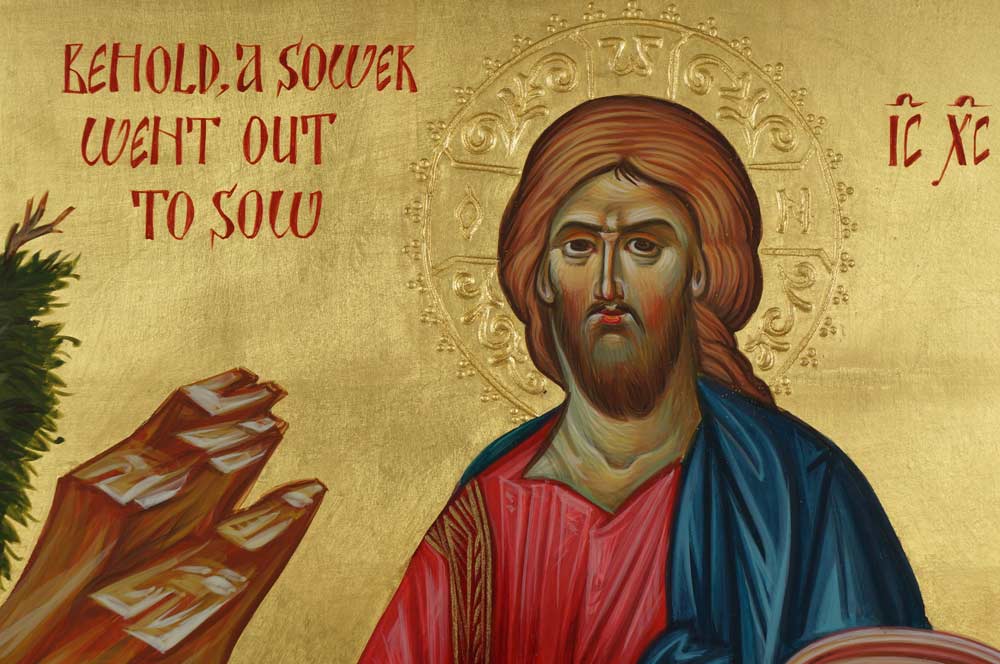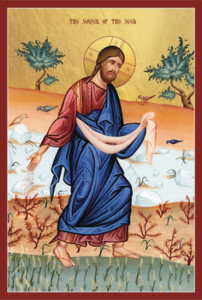A parable is a story, told by Jesus, that’s meant to challenge our concept of what God and His Kingdom are like. By speaking in parables, Jesus is saying, “You thought God and the Kingdom were like this but I’m telling you they are completely different and better than you thought.” Jesus uses unusual and sometimes uncomfortable images to describe God: He’s like an unjust judge, like a prodigal father or like a woman who searches for a lost coin. The Kingdom is like a King who forces people, both good and bad, to come to a banquet.
One way of thinking about the parables of Jesus is to classify them as parables of the Kingdom, parables of Grace and parables of Judgement. The parables of the Kingdom tell us what the reign of God Is like. Parables of Grace speak about God’s undeserved mercy and love. We are all under judgement, even though God is merciful, and so the parables of Judgement tell us about our eschatological end.
In the parable of the sower, Jesus invites us to prepare the soil of our hearts to receive the Word of God. We might be tempted to think that this Word is the Bible or some teaching made up of words. But the true Word of God is a person-Jesus Christ. (In the beginning was the Word…) We need to get the soil of our hearts ready to receive this Word and to live with it and through it every day of our lives.
The parable of the sower is a parable of the Kingdom (see Robert Farrar Capon, Kingdom, Grace, Judgement.) That is, it’s a parable that describes what it’s like to receive the Kingdom of God into our innermost lives. This amounts to receiving Jesus into our hearts because the Kingdom is wherever Jesus is. To receive the Kingdom is to encounter Jesus himself in the deepest part of ourselves.

Jesus speaks of the dangers we may encounter in this undertaking. The seed of the Word might fall on unprepared ground where the devil comes and interferes with its reception. It may fall on thorny ground where the cares and worries and pleasures of the world choke it so it bears no fruit. It may fall on rocky ground where it grows only in a shallow way and takes no root so that when a trial comes the recipient of the Word falls away. Or the seed of the Word might fall on good, rich soil which has been well prepared to receive the Word and where it takes root and flourishes and produces much fruit.
The preparation of the soil is the work of the Christian life. We prepare our hearts by prayer, fasting and caring for the poor but principally by prayer which is nothing more than relationship with the Word who is Jesus. Saint Theresa of Avila said that the highest form of prayer was simply to speak in friendship with the One who loves us. No matter how rocky or thorny or unprepared the soil of our hearts is, we can make it ready by prayer. In fact, prayer is the act by which we receive the Word and allow Jesus to cultivate the soil of our hearts so it becomes more and more ready to take root and bear fruit.
Saint Therese said, “Everything is grace.” This means that, in the end, Jesus is both the seed that is sown and the farmer who prepares the soil when we allow Him into our lives through prayer. The ultimate prayer, the ultimate encounter with Jesus is to receive Him devoutly in the Eucharist. At this time especially we should speak to Jesus who loves us and makes Himself vulnerable by coming to us under the appearance of bread and wine. The Second Vatican Council said that the Eucharist is the source and summit of the Christian life. In this sacrament, Jesus himself comes to us and sows himself in our hearts. Everything in the Christian life flows from this encounter with Jesus and this encounter is the highest, the greatest and the best thing that can happen to us in this life.
Jesus wants to sow the seed of encounter with him in our hearts; let us receive prayerfully the one who loves us so much.

